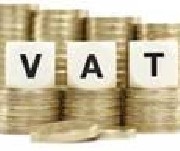Many are familiar or have maybe even worked with teams who set strategic goals for the organisation, but fail to create an operational process to achieve them. A disproportionate amount of time is spent on the strategy compared to the detailed plan of implementing and executing that strategy. All too often, managers attempt to point their team towards the strategic end game, but provide little guidance on the step-by-step tactics to get there. Here are a few tips from LIRIC to help you to implement your business plan successfully:
SET OBJECTIVES
Strategic business plans should provide financial targets, initiatives to reach those targets and an overarching philosophy in which the company operates. Writing the objectives is the easy part – it is the implementation of specific, measurable, achievable, realistic, timely (SMART) objectives that is key to the success of any business plan.
SUPPORT THE STRATEGY WITH TACTICS
A business plan that hits the mark not only identifies the strategic direction of the company, but also maps out the tactical elements that enable the company to execute the plan. This is where most companies fail to operate their strategic plan into tactical initiatives. Why are these strategies going to deliver the greatest return on investment and effort? How are they going to complete and deliver on their strategic plan? Who is responsible for all of the steps required to execute?
CASCADE THE OBJECTIVES
A strategic plan generally comes from the top. It is up to each of the department heads to internalise the plan and cascade the various tasks throughout their teams. Your companies managers should set the benchmark, help the team lay out the necessary tasks and then hold their time accountable to achieving those milestones.
MONITOR REGULARLY
Achieving strategic success is one part execution and one part inspiration. Hitting milestones on a regular basis provides the ongoing desire to see the plan through to its full fruition. Setting milestones and monitoring not only keeps the firm on plan, but also allows for management to communicate these successes to the wider team. Strategic targets can be daunting at the outset, but breaking them down into chunks makes achieving them more manageable.
Let us work with you on this – call LIRIC!
REASONS WHY PEOPLE START THEIR OWN BUSINESS…..
Here LIRIC reveal the most popular reasons, as detailed by a recent Barclays research, and their early experiences:-
- To work for myself….
It’s a cliché, but the research showed it still holds. 54 per cent of those canvassed said this was the reason they went out on their own, a claim most common in the North and Midlands. Paul Frost, of Paul Frost Associates in Teesside, left a career in broadcasting to launch a successful PR and media training business in 1994. “I wanted the flexibility of working for myself, and knew I had very useful and unique skills,” he said. “I’m ambitious and work better on my own, when I’m responsible for winning my own contracts. I’ve never looked back.”
- I was made redundant….
The payout that often comes with redundancy can make funding a new business much easier, which may explain why a fifth (20 per cent) of those asked said it was their catalyst.
Hannah MacDonald founded September Publishing a year ago after losing her job. “I’d never seen myself as an entrepreneur or business starter,” she says. “But when you’re made redundant, the change is made for you and you have to make the most of it. I didn’t want to give up on the industry and I need to work flexibly because I have kids, so starting my own business seemed better for my career.”
- Turning a hobby into a business…..
Most of us save hobbies for the weekend, but investing in that interest could be the key to a successful start-up. A significant 16 per cent of those asked had turned their hobby into a business. Joan Mulvenna launched Garden Design Manchester after retiring as a teacher and realising her real passion was horticulture: “I’m really busy at the moment and I’m thinking about how to expand,” she says. “Right now it’s just me – I hire a part-time gardener to help out but I’d love to employ someone full time.”
4. A childhood dream….
Those who had a childhood dream to own and run their own business make up 7 per cent of the research results. The motive was much more prevalent with women, with almost twice as many – 11 per cent – stating they grew up wanting to be a business owner, compared to 6 per cent of men. Kelly Alison launched KVA Digital a year ago. “From a very young age, I knew I wanted to run and grow a business,” she says. “It’s about more than making money – it was about achieving my dreams. Although it’s been one of the hardest years of my life, especially with a young child in tow, I absolutely love what I do and can’t imagine doing anything else.”
5. NOT a TV programme….
One surprising result from the research is that TV shows about starting up a business are cited by just 1 per cent of respondents as a reason for starting up their company, while celebrity entrepreneurs also offer little inspiration – again just one per cent of men and no woman said they were a reason for going into business.
Why did you start your business? – let LIRIC know your story!








